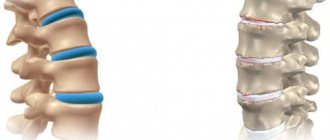A constant feeling of hunger is not always a symptom of a disease. The reasons for this could be, for example, stress, lack of sleep, psychological or physical disorders such as diabetes or bad eating habits that need to be corrected. However, sometimes this type of eating disorder can mean illness, including mental illness. This article will help you find out what causes the constant feeling of hunger.
Why does a person feel hungry?
Glucose is mainly responsible for the feeling of hunger. When its level in the blood falls, a person’s appetite increases, and vice versa, when the level of sugar in the blood rises, appetite decreases. Sugar detectors in the body are regularly transmitted to the brain. Information about the amount of sugar in the blood comes, in particular, to the hypothalamus, located in the central part of the nervous system. There is a so-called satiety center that regulates appetite with a neuropeptide.
The hypothalamus also works with cholecystokinin, a hormone secreted by the endocrine cells of the small intestinal mucosa under the influence of food, which causes dilation of the stomach walls and gives a feeling of fullness, as well as serotonin, a hormone that prevents the desire to eat sweets, sugar or simple carbohydrates.
In addition, the hypothalamus cannot function normally without insulin, a hormone produced by the pancreas and responsible for regulating glucose metabolism in the body. Insulin, in turn, triggers the production of leptin in adipose tissue, a hormone responsible for the feeling of fullness. The opposite function is assigned to ghrelin, a hunger hormone produced in the stomach.
And the seventh reason for my TOP why we experience frequent hunger is psychology.
One of the subscribers said very coolly : “ We eat our psychological problems, ignoring the true reasons for dissatisfaction with life. ”
And this directly applies to both hunger and overeating. We often confuse hunger with trying to eat some emotions.
To determine if you are hungry or something else, do the simplest “BROCCOLI” test. Are you really that hungry right now that you would eat a plate of boiled broccoli???
If not, then look for the reason anywhere, just not in hunger.
So we have looked at the TOP 7 reasons for constant hunger. I hope you found answers to your questions. If not, then write a comment under this post. Like it and share it with your friends on social networks.
Liked the article 15+
Articles on the topic
Keto and lchf lifestyle!
Read more
Calories on the keto diet and how to count them.
Read more
What do my children eat?
Read more
Common causes of constant hunger
A person can experience a constant feeling of hunger for several reasons:
- Regular consumption of sweets. After consuming foods containing simple carbohydrates, blood glucose levels rise rapidly, which leads to frequent feelings of hunger, and, consequently, to constant snacking even after meals.
- Eating food with long breaks. Feelings of hunger may occur if the gap between meals is 4-5 hours or more. After such “abstinence” a person develops a truly voracious appetite. To suppress hunger and reduce excessive appetite, you should eat regularly 5 times a day in small portions.
- Lack of sleep. Scientists have proven that hunger can occur as a result of constant lack of sleep. In such people, the production of two hormones that cause feelings of hunger and satiety - leptin and ghrelin - increases. Leptin is produced in fat cells, and high levels lead to lack of appetite. Ghrelin is a hormone responsible for increasing appetite, which is produced in the stomach usually when it is empty. Their functioning is impaired in case of sleep deprivation. Leptin levels then decrease and ghrelin levels increase in sleepless people. This condition leads to a significant increase in appetite and an uncontrollable feeling of hunger in the stomach even after eating.
- Frequent mental or nervous stress also increases the feeling of hunger, as the mechanisms that cause a feeling of satiety with food are disrupted. Constant stress increases the concentration of cortisol (adrenal cortex). Its excess leads to abdominal obesity, fat deposition on the back of the neck and insulin resistance. In addition, constant mental and emotional overload contributes to an increase in the production of norepinephrine, and, consequently, uncontrolled appetite. In turn, carbohydrates are involved in the production of serotonin, which improves a person’s mood - that’s why we eat sweets after stress.
How to get rid of the problem
- Go to bed as early as possible . This will help you get a good night's sleep and prevent late-night cravings. If you, having had dinner at 19.00, go about your business until 24.00, then, of course, you will still get hungry and want to eat. And timely sleep will protect you from excess food.
- Eat foods containing calcium . They will keep the required amount of calcium in your blood, which will help control your hunger. And you should not buy low-fat cottage cheese or low-fat cheese, because this fat contains vitamin D, which is necessary for the absorption of calcium.
- Eat whole grains . They contain complex carbohydrates that will be absorbed by the digestive system for a long time, and the feeling of fullness will remain for a long time. The healthiest ones include buckwheat and oatmeal.
- Drink alkaline mineral water . Just a few sips of this water will relieve you of hunger if you drink it in the intervals between meals. Stomach acid is neutralized by alkaline compounds, and water fills the empty space in it.
- Try inhaling the aroma of your favorite perfume , aromatic oils or citrus peels. This will help you forget about food for a while, because the hunger center in the brain is located next to the center of smell.
- Buy dishes that are small and blue in color. This will help significantly reduce your portion size, so you will stop overeating. And the blue color helps reduce appetite.
- You should not have harmful, high-calorie foods on your table . Instead, put fruits, dried fruits, and nuts. If you need a snack, this type of food will not harm you. Of course, everything should be in moderation.
- Eating should take place in silence . When you eat in front of the TV, you are distracted from the saturation process. Also avoid eating socially, this will help you avoid overeating.
- Protein-containing foods will help relieve hunger . Lean fish, chicken breast, and lean red meat do a good job of curbing your appetite. Natural fats have a similar effect, so eat nuts, olive oil, etc.
- Find something fun to do . For many people, the reasons for continuous hunger are hidden in the lack of things to do. When you are busy with important work, you automatically avoid thinking about food.
You must definitely fight the constant feeling of hunger, then your well-being will improve significantly, and your beautiful complexion and slender figure will catch the admiring glances of others.
Constant feeling of hunger during pregnancy
If during pregnancy there is constant hunger and a desire to snack, then the expectant mother has no reason to worry. Increased appetite during pregnancy is due to the fact that the developing baby requires more and more nutrients. However, a constant feeling of hunger during pregnancy can be a symptom of a disease; for example, if a woman’s body experiences uncontrollable appetite, then she should be checked for gestational diabetes.
Proper nutrition
Remember that breakfast gives us a boost of energy for the whole day, and many people skip it altogether or replace it with a sandwich and coffee. And in vain. If you have a proper breakfast, you will be less hungry throughout the day, and you will eat much less for lunch and dinner. In the morning, it is recommended to eat cottage cheese, cereals, cheese, eggs and other healthy protein-carbohydrate foods. But it’s better to listen to your body and make your breakfast taking into account its desires and capabilities. For example, if pure cottage cheese does not give you a feeling of fullness, you can prepare a cottage cheese casserole.
- Not many people eat exceptionally healthy food, and that’s a fact. But for the body to function normally, you need to think about proper nutrition.
- The diet must certainly contain proteins, fats, carbohydrates, vitamins, microelements, and fiber. Give your choice to cereals, vegetables, fruits and dairy products.
- The diet must include 5 meals, where 3 of them are full meals and 2 snacks. Soon you will no longer be tormented by constant hunger, and you will not overeat. The last meal should be two hours before bedtime.
Vegetables and fruits contain enormous amounts of fiber. The body will take longer to digest such food, and hunger will come later than usual. Eat fruits raw, do not prepare freshly squeezed juices. When you eat a fruit, both sugar and fiber enter your stomach. And juice will feed the body only with sugar. If the stomach has high acidity, eating raw vegetables is not allowed. You can stew, boil, bake, and if you combine it with a small amount of vegetable oil, carbohydrates will be absorbed longer.
What diseases cause constant hunger?
Due to various, and not only physiological and psychological, cause-and-effect factors, blood glucose levels decrease. Signals to the central nervous system about a lack of energy reserves in the body can be sent by various clinical anomalies of a person.
Symptomatic signs and causes of constant feeling of hunger even after eating may be associated with certain diseases, for example:
- Diabetes mellitus type 2. The constant feeling of hunger is caused by excessive secretion of insulin, which leads to an acceleration of the conversion of glucose into glycogen and then into fat. In other words, what a person eats does not turn into energy, but into fat.
- Hypoglycemia is a condition in which the amount of glucose in the blood drops below 0.55 g/l. In addition to the feeling of hunger, a person experiences weakness and depression of the body, a constant feeling of nausea and vomiting. This situation requires an immediate medical response, as there is a risk of hypoglycemic coma.
- Thyroid hyperthyroidism is an endocrinological problem. The disease is accompanied by a decrease in body weight and a feeling of constant hunger, which is explained by the acceleration of metabolic processes.
- Parasitic diseases. A constant feeling of malnutrition or hunger can occur if there are helminths in the body that feed on starchy and carbohydrate-containing foods. Helminthic diseases are most often identified in children. A constant feeling of hunger after eating in this case requires a thorough diagnostic examination; it is possible that the child has parasites.
- Bulimia is a clinical pathology manifested by uncontrolled food consumption. People suffering from bulimia experience a constant desire to consume large amounts of high-calorie foods, which further affects their condition. A person begins to vomit and requires the administration of medications that reduce appetite and suppress hunger. Often the patient needs help from laxative medications.
- Acoria is a painful condition of the body that prevents the feeling of fullness in the stomach. This condition refers to mental illness. Despite their gluttony, sick people always complain of a feeling of emptiness in the stomach and are constantly hungry.
Errors
Natalya Kozhina, AiF.ru: Doctor, is it right to skip dinner?
Article on the topic
What's stopping you from losing weight?
Five mistakes we make on the way to slimness Mikhail Zeigarnik : I think this is completely wrong.
This is exactly how problems arise related to evening and night hunger, breakdowns and trips to the refrigerator, so it is necessary to have dinner. It is not clear where the popular statement “don’t eat after six in the evening” came from. Nothing like that - you can have dinner at seven or eight in the evening, the only question is what time you go to bed. There is no need to pray for these numbers or demonize them - dinner should be, what it is is another matter. Naturally, you should not eat very high-calorie and “heavy” foods before going to bed. As a rule, I recommend protein dishes - for example, lean meat, fish or poultry would be ideal - they are easier to digest. The side dish should be vegetable, not carbohydrate. You should have dinner 2-3 hours before bedtime. Before going to bed, you can eat something else low-calorie - low-fat kefir, yogurt (the main thing is that it is not sweet), and even better with the addition of bran or cereals: it will be low-calorie, but satisfying. — What do you think about separate meals?
— The doctrine of separate nutrition is based not on knowledge about the human body, but on myths and, in its way, almost religious thinking. You can believe in it or not, but separate nutrition has nothing to do with dietetics.
You just need to focus on your own feelings. If any foods seem incompatible to you - not because you read about it in a magazine, but because you feel uncomfortable when combining them - you should not eat them together. Nutrition is still not drug therapy, and when planning it, a person should listen to himself, and not blindly take on faith what is prescribed by someone else.
— Are there any products that help break down fat and speed up metabolism? Some women actively drink ginger-lemon tea, believing that it gets rid of excess weight, but is there such an effect?
Article on the topic
A significant problem. What hormones add extra pounds? — Alas, there are no such products, no matter how much their manufacturers and sellers would like otherwise. None of the foods speed up metabolism. Some foods can slightly repel the feeling of hunger and somehow modify the properties of other foods. For example, everyone believes that pineapples break down fat. Unfortunately, this is not the case, but the bromelain they contain promotes protein digestion. And all these “teas” lead to the fact that a person begins to eat an unbalanced diet, denying himself what he needs. Often those who prescribe such “miracle remedies” promise that thanks to them, those who are losing weight will eat less, since they will not feel hungry. In fact, hunger remains; a person simply persuades himself. Therefore, such weight loss methods are a scam and an attempt to pass off wishful thinking.
— In the summer, many people radically change their diet, for example, giving up meat. Does this make sense, or should seasonality not affect your diet?
- This is all mainly a tribute to fashion. The diet can be changed, but to do this you need to understand why you are changing it. Trying to get healthier, you can harm yourself. Let’s say a person is sick with chronic pancreatitis, in such a mild form that he doesn’t even know about it, since the disease does not manifest itself in any way. And if he suddenly changes his diet, this can cause an exacerbation. If something seems wrong to you in your diet, the only possible way is to see a professional nutritionist, he will help you choose the right diet.
There is one good prescription for summer: drink more water, because it discourages the desire to eat. Very often, the feeling of hunger is actually a feeling of thirst, a person simply does not understand this and starts eating, although he just needs to drink a glass of water. In total, a person needs 1.5–2 liters of liquid, including that included in dishes. In hot weather, if health allows and there is no swelling, 2.5–3 liters is acceptable. Only it should be water, and whether carbonated or not is your choice. The main thing is that it should not be sweet, because any sweet water contains a wild amount of sugar and does not quench your thirst.
Additional symptoms
A cause for concern is the combination of hunger with the following symptoms:
- extreme thirst, sweating, anxiety, increased heart rate - may indicate diabetes;
- nausea, weakness, fatigue, menstrual irregularities - about pregnancy;
- pain in the upper abdomen, right hypochondrium, worse at night, nausea, vomiting, heartburn - occurs with peptic ulcer or gastritis;
- irritability, tearfulness, sudden weight loss, trembling of the hands or the whole body - with thyroid disease;
- pale skin, rashes, abdominal discomfort, itching – with ascariasis, enterobiasis;
- palpitations, sensory disturbances, fear, severe hunger - with hormonally active tumors (insulinoma, pheochromocytoma);
- apathy, lethargy, reluctance to communicate with others, bad mood - during depression.
Symptoms of the disease
Head pain experienced during fasting has at least 1 of these characteristics:
- localization in the frontal region of the head;
- spread throughout the head;
- no sensation of pulsation;
- light to medium intensity.
These signs occur if a person undergoes therapeutic fasting in order to lose weight or cleanse his body. Sometimes they also appear after a long (more than 5 hours) break between meals.
Symptoms of cephalalgia are relieved after eating and subside within 72 hours after resuming normal eating.
Localization and causes of headaches.












